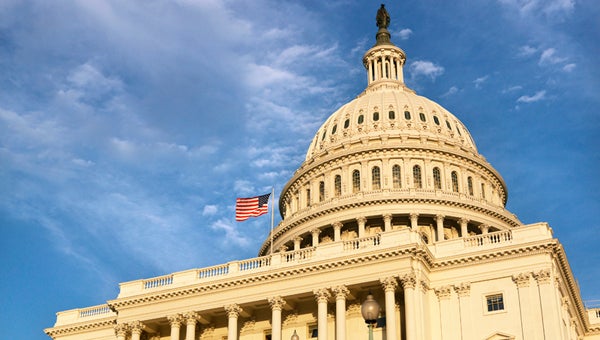FAA shutdown may impact Troy
Published 2:15 pm Monday, July 25, 2011
The Troy Municipal Airport expansion could fall prey to politics as airport projects across the nation are put on hold in the wake of a Federal Aviation Administration shutdown.
At stake is more than $2 million in funding to complete renovations and expansions to Troy Municipal Airport, a $6 million project funded primarily through FAA grants.
“If the shutdown were to last a long time, it could delay the project,” said Mayor Jimmy Lunsford. “I talked to Sen. (Richard) Shelby’s office, and they think this is a short time frame.”
Lunsford said engineers are poised to begin the third phase of the airport improvement project, which includes the paving and lighting of the 6,500-foot runway which has been added to airport. The project is expected to cost between $2 million and $2.4 million, and the FAA has agreed to provide 95 percent of the funding, as it has with the first two phases of the project.
“We have been approved subject to the review of the bids by FAA,” Lunsford said Monday. “We open the bids on the 27th, send them to the FAA for their concurrence, and hopefully award the bid during the first meeting in August.”
However, the FAA shutdown on Friday night, as Congress failed to pass legislation to keep the agency operating. If the issue is resolved quickly in Washington, Troy can maintain its project timeline and work at the airport could be completed by the end of the calendar year, Lunsford said. If not, the work could be delayed,
“It’s seems the FAA is always catching the brunt of the politics,” Lunsford said. “With the health care legislation, when they were trying to kill it a couple of months ago, they attached it to the FAA appropriations as well.”
Lunsford said, however, he is confident once the political issues are resolved the Troy project will be on track. “We’re already approved for the work. It’s in the FAA budget. The money is there,” he said.
According to the Associated Press, about $2.5 billion in federal airport construction grants cannot be processed because workers who handle those grants have been furloughed, officials said. That, in turn, has halted construction projects, putting hundreds of other people employed by those jobs out of work.
Dozens of stop-work orders were issued over the weekend for projects to build and modernize airport control towers, as well as other improvement projects, officials said. Many of the airport projects are designed to improve the efficiency of air travel and reduce congestion.
House and Senate exchanged blame Monday for the legislative stalemate that precipitated a partial shutdown of the Federal Aviation Administration while making no overture to resolve the dispute to restore the agency to full operation.
The FAA’s operating authority expired at midnight Friday, forcing a partial shutdown of the agency. Dozens of airport construction projects across the country have been put on hold and thousands of federal employees were out of work.
Air traffic controllers have continued to work, as well as FAA employees who inspect the safety of planes and test pilots. Transportation officials have said safety won’t be compromised. But it was unclear how long the FAA can continue day-to-day operations before travelers begin to feel the effects of the shutdown.
Rep. John Mica, R-Fla., chairman of the House Transportation and Infrastructure Committee, said there have been no negotiations between the Republican-led House and the Democratic-led Senate to resolve the dispute.
Republican leaders said they are determined to hold their position that the Senate must accept a House-passed bill to extend the FAA’s operating through mid-September even though it contains a provision eliminating $16.5 million in air service subsidies for 13 rural airports that Democrats say is unacceptable.
“This is sort of sad, you know,” Mica told reporters. “On the eve of the country’s finances near collapse, it’s sort of symbolic of the whole problem here: No one is willing to eliminate any wasteful programs.”
The subsidy program was created after airlines were deregulated in 1978 to ensure continued service on less profitable routes to remote communities. Not all those communities are remote anymore. The GOP provision would end subsidies to communities less than 90 miles from a hub airport or where subsidies average greater than $1,000 per passenger.
Democrats said the real issue is that Republicans are insisting Democrats accept a host of contentious provisions added to a long-term FAA spending bill approved by the House in April. Among their key differences is a GOP proposal sought by industry that would make it more difficult for airline workers to unionize.
The Senate passed its own long-term funding bill in February without the labor provision, which Democrats insist much be dropped. They also accused Republicans of tying the elimination of rural air subsidies to their extension bill as a means to prod Democrats to make concessions on the labor issue.
“House Republicans are nowhere to be found, refusing to come back to the negotiating table after pulling yet another cheap political stunt at the expense of rural Americans,” Senate Majority Leader Harry Reid, D-Nev., said in a statement.
“Their reckless intransigence has not only shut down the FAA, but is threatening Congress’ ability to successfully complete work on the long-term FAA reauthorization that our economy and the livelihoods of thousands depend upon,” he said.
The shutdown is costing the FAA about $30 million a day in lost revenue because airlines no longer have authority to collect ticket taxes. That money goes into an aviation trust fund. The fund “has a healthy balance now, but that would be depleted in fairly rapid order” without congressional action, FAA Administrator Randy Babbitt told reporters in a conference call.
Nearly 4,000 FAA employees in 35 states, and the District of Columbia and Puerto Rico, who are paid from the trust fund have been furloughed.





